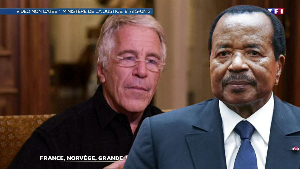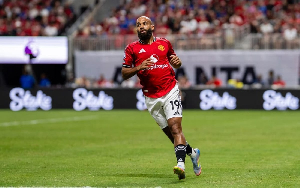“Political language is essentially bad language because it is usually sentimental and devoid of facts”. These are the words of the celebrated George Orwell in an essay titled: “Politics and the English Language.”
Orwell cites two statements on the same subject in two different newspapers, one a pro-government newspaper and another a newspaper sympathetic to the opposition. Read what the pro-government newspaper wrote: “The government has taken tough measures against terrorists”. Below is the one in the pro-opposition newspaper: “The regime has begun a vicious crackdown on the freedom fighters”.
Such language-usage was common in Cameroon in the early 90s. The state media referred to SDF supporters as “vandals” while their party leader called them “soldiers of democracy,” “hunting dogs” and other endearing names.
President Biya’s utterances about Boko Haram before leaving for the USA-Africa summit in Washington constituted what Orwell calls “bad language”. He likened the war he since declared against Boko Haram to those against the Macquis, propagators of the “Ghost Towns” operation and the war against Nigeria in Bakassi. Bad language is synonymous to propaganda language because the facts on the ground are different. Let us examine the wars which he claimed Cameroon has won one after another.
The war against the Macquisards shortened to “Macquis” was a long drawn bloody campaign against UPC nationalists who wanted Cameroon liberated entirely from the French. The “Macquis” chose to function from the forest and Ahidjo used not only the Cameroonian army, but also French military machine to crush them.
Um Nyobe, for instance, was hunted like a wild beast and finally mowed down by a French machine gun in the forest of Loum. In order to win the sympathy of the population and build up profound hatred for the “Macquis”, the Ahidjo regime orchestrated the killing of innocent citizens whose heads were cut and hung along the public highway and while the “Macquis” were accused of being behind the killings.
The Biya regime didn’t really crush the operation “Ghost Towns” activists. It simply manipulated and split the hard core opposition. Proof that the regime lost the war is the salary cut of close to 70% which took effect from 1993, approximately two years later.
The “Operation Ghost Towns and Civil Disobedience” dealt the Cameroonian economy a severe blow. Djeukam Tchameni’s “Carpe Liberte” which came up with the idea of “Carton Rouge”(Red Card) was so effective in handling the gendarmerie that the “Ghost Towns” operation registered close to 100% success in Douala despite the titanic efforts of the late Jean Fochive and Paul Nji Atanga to counter it.
Till date, Atanga boasts that he bought a hundred taxis which security men used to neutralise the “Ghost Towns” operation in Douala. But Douala residents at the time would testify that there is more propaganda than truth in that allegation. We all know that Cameroon got Bakassi thanks to the International Court of Justice, ICJ ruling, not military force.
Opinions of Saturday, 9 August 2014
Auteur: Guardian Post Newspaper














